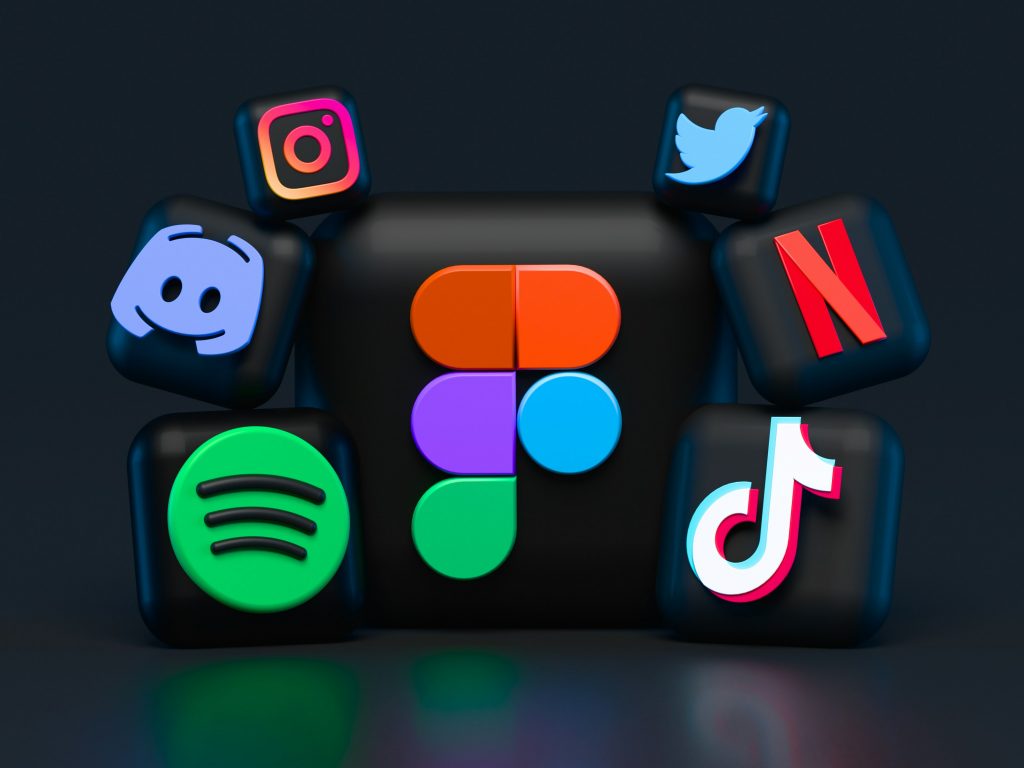
In the past few decades, it would have been just a dream to imagine a world where one can communicate with people living across the world while seeing their faces. Now, it is possible to communicate with anyone, in the comfort of one’s own home. Certainly, the internet has emerged as an impressive force that has changed the world. Aside from connecting people around the world, the internet plays a fundamental role in the way the world operates. Among Ahmadi Muslims, the internet is being used to spread the message of Islam to the masses. This task has become easier than ever. In this era, any innovation should be used to deliver basic human rights and essential services to people who are vulnerable and those living in remote regions. This is how the internet has been utilized to change the world for good. Hence, while the misuse of the internet can have negative impacts, the internet has positively impacted the world by connecting society, facilitating the spread of the message of Islam, and being used as a means to provide essential services to the vulnerable.
Gone are the days when people would write letters to loved ones living in other countries, just for them to reach the recipients up to two months later. In recent times, it has become effortless to speak to someone living across the world, which has gained traction in the recent Covid-19 pandemic. By the end of March 2020, the total number of users on the Zoom video conferencing platform jumped by 190 million users in just three months who relied on the platform to connect with their loved ones. The work of businesses did not halt despite the restriction against in-person gatherings. This permitted education to continue for young children and adults alike while keeping them safe. A whopping eighty-one percent of Americans said that due to the presence of the internet, they were able to keep up with communicating even when the lockdown was in place. A staggering forty percent of Americans discovered new ways to use the internet to their benefit. Such advanced internet use allowed for this connection to take place. Looking back at the history of pandemics in the world, there have never been as many resources to ensure people have access to health services, such as virtual healthcare – telehealth – and essential items of need. Likewise, Ahmadi Muslims around the world did not remain deprived of taking advantage of the internet. Thousands of Ahmadis were able to speak to their spiritual leader, Hazrat Khalifatul Masih (may Allah be his Helper) through virtual meetings. Alongside permitting the meetings of Hazrat Khalifatul Masih (may Allah be his Helper) to continue as usual, it also marked a milestone moment as members of the community abiding in remote or distant regions were also able to meet their leader. In the perilous circumstances of the early days of Covid-19, these meetings served as a source of comfort for the members of the Ahmadiyya Muslim Community who were able to seek guidance from their Khalifa. As such, the first of such meetings were held with the male children members from Canada. Moving away from the Covid-19 era, millions of Ahmadi Muslims are connected through the use of the internet by MTA International. Whether it be the weekly Friday Sermon, keynote addresses delivered at momentous occasions, or virtual meetings with the members of the community around the world, MTA International has connected millions of members and spiritually uplifted them by keeping them close to the activities of Hazrat Khalifatul Masih (may Allah be his Helper), therefore fulfilling the prophecy vouchsafed to the Promised Messiah (peace be upon him), “I will cause thy message to reach the corners of the earth”. All of this demonstrates that the internet plays a crucial role in the connectivity and connection of people all around the world, and continues to shape how the world interacts. Being used as a force for good, the internet has proven to be such an integrated part of society.

For Ahmadi Muslims, propagating the teachings of Islam to the public can seem like a daunting task. However, the internet has made this much easier. From the comfort of one’s own home, the preaching of the true teachings of Islam can take place on various platforms, as has been the case in recent years. The internet is being used for various purposes, however, the use of the internet as such – to spread the teachings of Islam – is one of its true purposes. This is justified by the Holy Quran which states, “And by those who spread a thorough spreading”. To clarify, Hazrat Mirza Masroor Ahmad (may Allah be his Helper) states in his book Social Media, “And presented those who spread the message in a good manner as a witness. This is the message for which the Holy Prophet (peace and blessings of Allah be upon him) was appointed. It is the perfect religion that will last until the Day of Judgement, and in the current age, the advent of the Promised Messiah (peace be upon him) occurred for its revival.” He further states, “In this age, God has provided modern means of propagating this message. The Companions of the Holy Prophet (peace and blessings of Allah be upon him) did not have modern means and resources yet they honored the dues of [propagating the message of Islam]. Today, the means and resources are available.” This demonstrates that the foremost duty of an Ahmadi Muslim is to use any efficient means available to carry out their duty of spreading the message of Islam to the world. The internet is a modern and efficient way for this purpose, and if used as such it can be said that the internet has had a positive impact on society. Various social platforms are available which see thousands, if not millions of new posts every day. If a few hundred of these posts are about the true and peaceful teachings of Islam, it would mean that a few of these users on various platforms would see these posts. Statistics show that over 4 billion people were users of some sort of social media in 2022 – nearly half the population on Earth. If one ponders upon this, they would conclude that the internet was specifically made for this purpose i.e. to be a modern means of preaching the religion of Islam and to shut down any false accusations. Through these platforms, so many people are gathered in one place with no effort. At the same time, misconduct through these apps can lead to false notions about the Ahmadis and what they preach. Regarding this, Hazrat Khalifatul Masih V (may Allah be his Helper) states, “…this also increases our responsibilities because those who are hearing our message will also look in our direction to see if we are practicing what we preach. If they observe that the message we are conveying is true, but the standards of the Ahmadis themselves are weak, then instead of having a positive impact it may have the opposite [effect].” Thus, it is imperative that to have a positive impact on the viewers, self-conduct must be in top shape, or else the use of the internet for preaching the true and peaceful teachings of Islam can backfire and lead to distress. Certainly, the internet facilitated this task and if taken full advantage of, can positively impact the world and the overall take on Islam’s teachings.
In this decade, residents of first-world countries such as Canada and the United States have every basic necessity available to them, from clean drinking water to proper healthcare access. Amnesty International has classified universal health care to be a fundamental human right. However, the population of third-world countries have to suffer due to a lack of infrastructure. Certain regions are so remote that basic commodities can only reach them via planes. In this era of internet advancements, it has become possible to provide basic essential services to people without having them leave their homes. For instance, telehealth services can connect patients to a healthcare professional via the internet. That means that basic doctor check-ups can take place through mobile phones and computers. This also includes speaking to specialists who may be located in distant cities, which is extremely beneficial to those living in remote towns. In many parts of Africa, a company is using drones and the mobile application WhatsApp to get prescription drugs delivered to remote residential areas in just ten to fifteen minutes. The same medicines that used to take hours, if not days to arrive, now reach the patients swiftly. Not only are they delivering life-saving drugs, but have also performed blood plasma deliveries. Now, over 300 health centers are dependent on these drones for the delivery of essential drugs. According to technology expert Kofi Kafui, the drone delivery system “has made it easier to reach remote communities where access to healthcare was a challenge” by having an advantage over risky roads and areas that are afflicted with extreme flooding. The same type of service has been launched in Uruguay. This is only possible with the integration of the internet with modern inventions, such as drones, which can be programmed to fly to various remote areas. Another basic human right is the right to education for all. In terms of education – aside from the Covid-19 era, where virtual classes and instruction continued through the internet – educational resources and materials are readily available on the internet. There are also millions of videos and resources on platforms such as YouTube, which is free to use anywhere. In recent times, the internet has made knowledge available to anyone, despite their location, ethnic and/or racial background, or financial situation, instead of just the privileged. According to a study conducted by the Pew Research Center, a median of sixty-four percent of developing nations said that the internet has had a positive impact on education. In an address on 3 September 2023, Hazrat Khalifatul Masih V (may Allah be his Helper) referred to the establishment of universal human rights in Islam and referred to the following verse, “And [remember the time] when We took a covenant from the children of Israel: ‘You shall worship [nothing] but Allah and [show] kindness to parents and to kindred and orphans and the poor, and speak to men kindly and observe Prayer, and pay the Zakat’; then you turned away in aversion, except a few of you” (2:85). He stated that being a Muslim, it is the fundamental duty that one carries out the service of mankind, including people of all walks of life; “The injunction is a command to take care of the whole of humanity, not just those close to us. The Muslims are told to establish these rights and to never forsake them.” Whether that be by increasing internet access via satellites or promoting education in rural areas. In brief, the internet is taking huge strides to reconcile education with the unprivileged, and ensuring universal healthcare availability in rural regions or areas with low income, so that the vulnerable populations no longer remain deprived of basic human rights.

As with anything, the misuse of the internet remains a threat and can lead to a plethora of problems for its users. Among these drawbacks, some include the dissemination of misinformation, cybersecurity threats, and addiction. Regarding misinformation, part of the responsibility is upon the news industry to shut down any misinformation and the spread of fake news by ensuring the quality of journalism and reporting is on par with reliability and fairness. The other part of this responsibility is on the social media networks which must ensure that they are cracking down on any false headlines. According to the Pew Research Center, 36 percent of people named a news organization website or app from where they get their news, whereas 35 percent said social media. This depicts that these two sources are at the frontlines of ensuring the public sees the right news. Recently, social media platform X launched a crowdsourcing feature where approved users can leave a note under a post that may seem to be misleading to keep people better informed. Studies show that volunteer efforts to fact-check misinformation are indeed reliable when paired with collaborative efforts between volunteer fact-checkers and the platform. These are measures that have been implemented by the main sources of news for the general public which are combating misinformation. Cybersecurity threats remain a hot topic, however as it goes with anything, those wanting to abuse the system can find ways to do so. For instance, banks and institutions with expensive goods that are heavily guarded are yet vulnerable to attacks. The same goes for the cyber network infrastructure. Large companies and organizations such as the North Atlantic Treaty Organization (NATO) have acknowledged that such threats are destructive and can result in mass destruction, thus they have fortified their ability to detect and defend against cyber attacks. There are also concerns regarding addiction to the internet, which in most cases comes from parents for their children. In any case, moderation is the way to balance everything – not too much of something that one gets addicted to. Firstly, it is important to define what an internet addiction refers to. An addiction, as defined by the users of the internet themselves, has been described as spending “more time online than they feel they probably should”. However, the real addiction occurs when people “spend so much time on screens that they skimp on eating, sleeping… or spending time with friends and families”. The Holy Quran mentions moderation in all aspects of life, as is stated, “O children of Adam! look to your adornment at every time and place of worship, and eat and drink but exceed not the bounds; surely, He does not love those who exceed the bounds” (7:32). which sheds light on the adoption of the middle course as a source of earning God’s pleasure. The Child Mind Institute backs this as they mention that “using tech to talk to friends” and other leisure activities should not be a problem as long as it is “in moderation”. Since the use of the internet is interwoven in the day-to-day work lives of billions, it is important to limit the use of the internet during leisure time. The International Psychology Clinic recommends reducing time spent on the internet gradually, to ease the process of getting rid of addiction. It has also been observed that the use of the internet may be masking other mental health problems, such as anxiety or ADHD, which may be leading “kids to take refuge in online activities”. That means that excessive use of the internet may reveal other underlying mental health conditions, thus leading to correct diagnosis. Therefore, if proper and moderate use of the internet is enforced and steps to strengthen the systems that billions of people rely on are thoroughly taken, the internet can continue to positively impact the world at large as it is currently doing so. As with many other resources in the world, the internet is not a hundred percent perfect, which leaves room for improvement and development as the world is continually advancing.
In conclusion, where it would have been just a dream to imagine connecting with others without leaving home a few decades ago, now this has become a reality. The internet has emerged as a transformative force that has changed the world and has caused a revolution in many factors of society. From the increased reliance on the internet to keep the world moving during the Covid-19 era, to the spiritual connection of millions of Ahmadi Muslims worldwide with their leader. The ease of propagating the message of Islam while shutting down false accusations leveled by the world has been attributed to the internet and its true purpose. The fundamental human rights and basic essential services that are saving lives are being fulfilled and constantly improving lifestyles through the help of the internet, which reconciles remote regions with urban resources and removes barriers to the access of human necessities in these areas. All of this is being done through the internet, which being used as a force for good, has positively impacted society and the world at large. This is something that the world should take pride in because this era has seen such technological advancements as have never been seen before. Surely, the internet is positively impacting the world.



